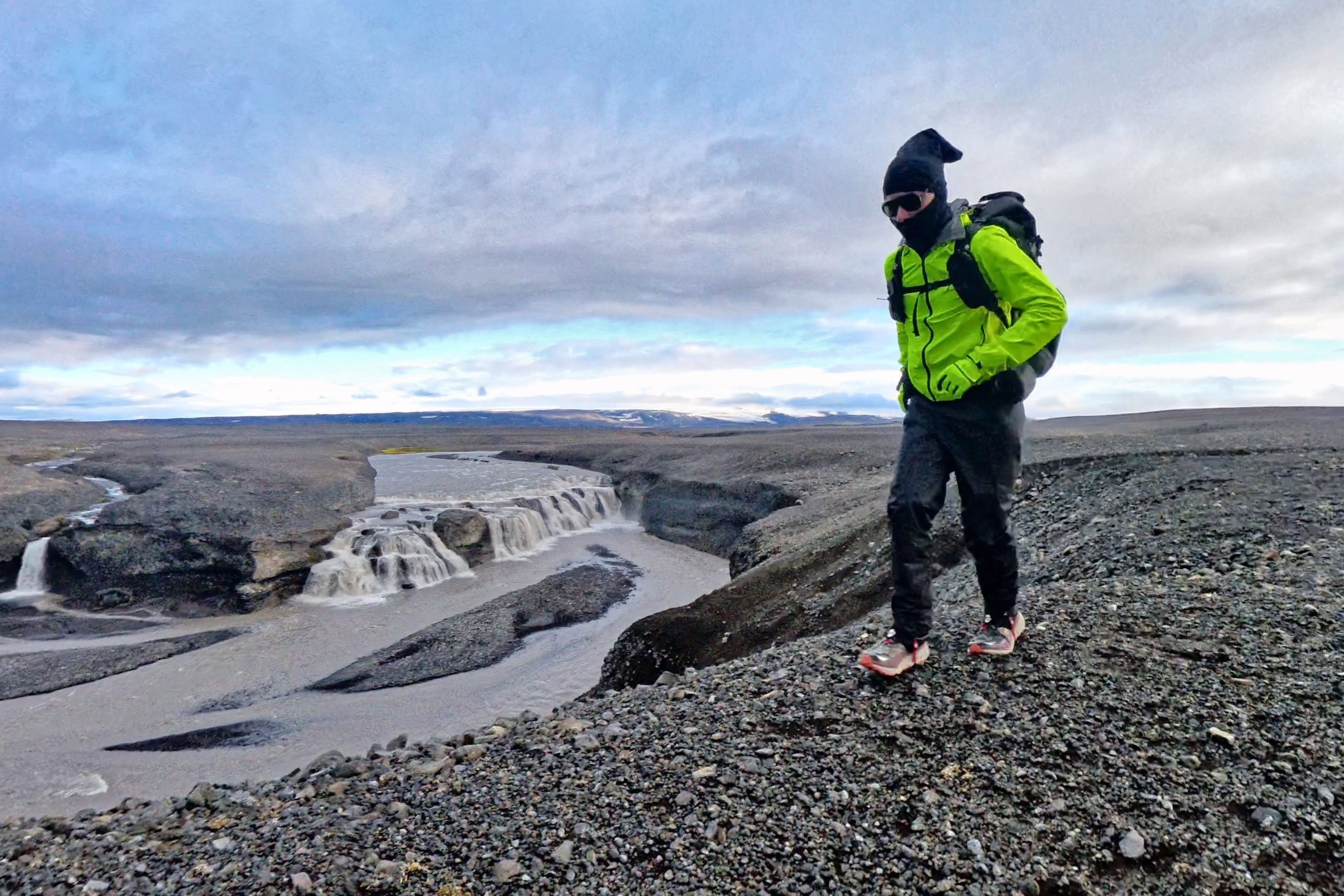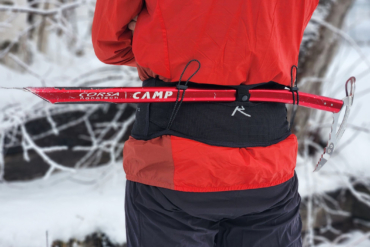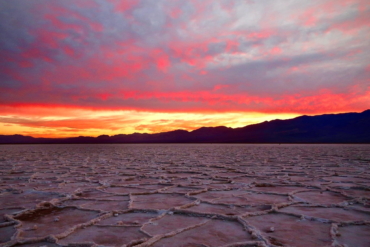Iceland had been at the top of Hunter Leininger’s bucket list for many years. But the 23-year-old adventure and endurance racer wasn’t going to be satisfied with an easy trip around the Ring Road, visiting waterfalls and hot springs. To merit an expedition to the Land of Ice and Fire, “I wanted to do something epic,” he told GearJunkie.
So, Leininger started looking for an objective. When he discovered that Christof Teuscher had set an FKT in 2023, traversing the entire country on foot, a distance of over 320 miles, in just 8 days, 11 hours, and 4 minutes, his sights were set.
The route is known as the “North-South Traverse.” It starts at the northernmost lighthouse in Iceland and ends at the island’s southernmost lighthouse. Teuscher meticulously planned the time of year when the Icelandic highlands were open to travel and scouted the route numerous times. He’d already done the logistical hard work for Leininger. All he’d have to do is beat Teuscher’s time.
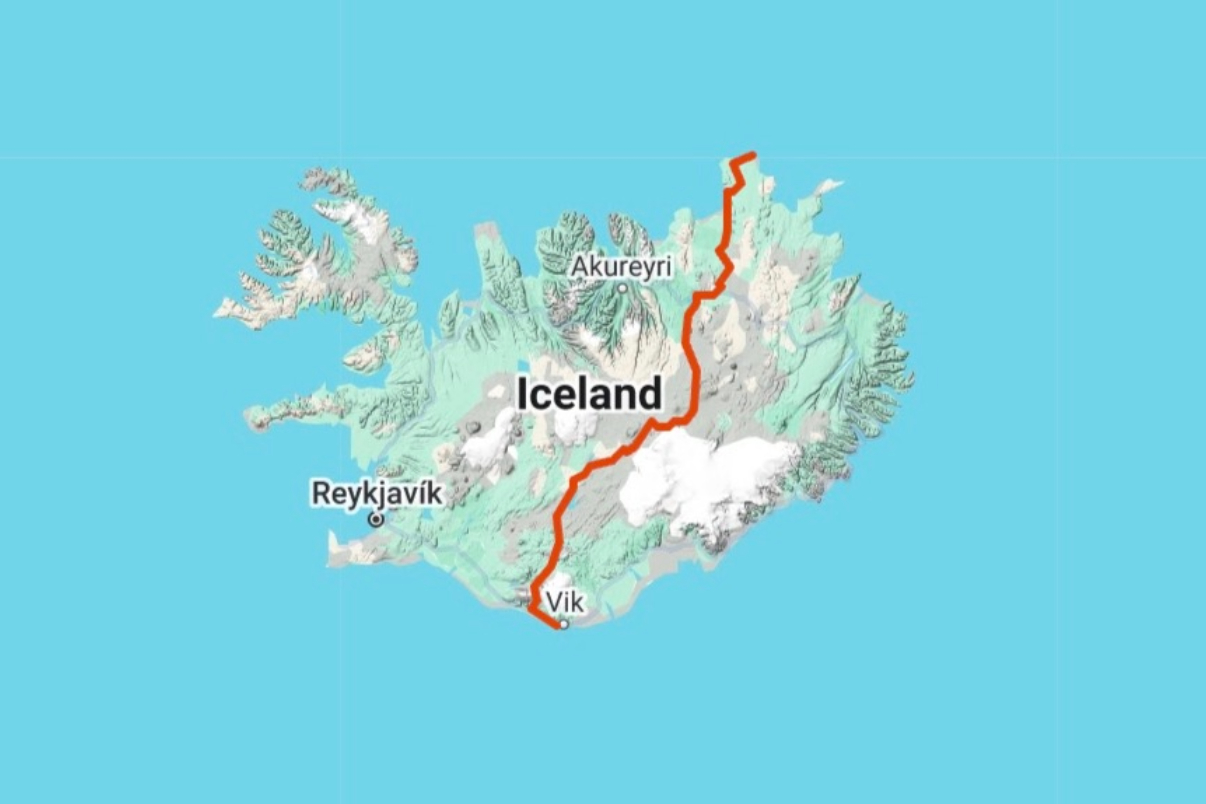
He was confident he could do that. Leininger has been adventure racing since he was 7 years old. He competed in the 24-Hour Adventure Racing Nationals at the age of 11. By 18, he’d completed The World’s Toughest Race Eco-Challenge Fiji. These days, he’s setting records like his FKT running the 1,110-mile length of Florida.
“This recent Iceland Traverse was kind of a mixture of everything I’ve learned with the adventure racing and the ultra running,” Leininger said. All of his survival and navigation skills, and all of his endurance and physical abilities were tested to their limits.
Still, never once did Leininger’s confidence falter — even when he realized a third of the way through that he’d only brought enough food for 6 days. And even when the end was literally in sight, and he suffered a serious, potentially FKT-attempt-ruining injury. He just kept moving. And when he reached the southern lighthouse, he’d made it in just 6 days and 13 hours, smashing the previous record by roughly 46 hours.
We connected with Lenininger shortly after he announced his FKT to talk about the adventure, the challenges he faced, the motivation of starvation, and the gear that kept him alive as he crossed the remotest part of Iceland alone and unsupported.
Q&A With Hunter Leininger: Iceland N-S Traverse FKT
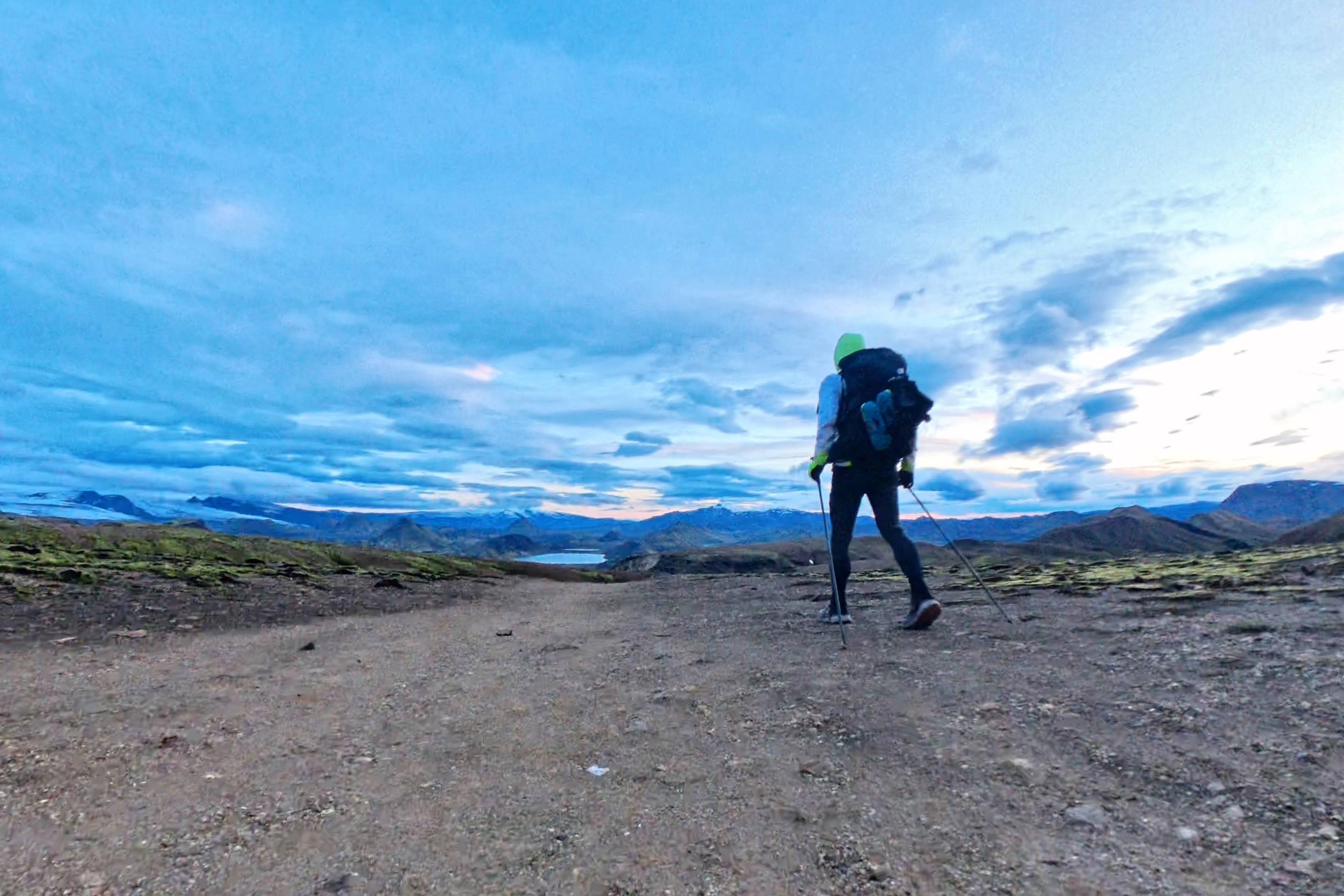
GearJunkie: How much did you know about Iceland going into this FKT attempt?
Hunter Leininger: I feel like with social media and everything, if you do too much research and you look up too many videos, it can take away from the experience out there. So I kind of wanted to go into it blind.
I kind of knew what to expect, but I didn’t know what I was going to see out there. I didn’t realize how beautiful Iceland is and how vast it is. Everybody sees the exterior of Iceland. All the beautiful touristy waterfalls and beaches and everything. But in the middle of the Highlands, nobody goes up there. I didn’t see anybody for 3 days. It’s just vastness, just sand dunes and deserts and glaciers, and it was just so remote.
Did you know what time you were going for when you set out?
[Christof Teuscher] is one of the best [endurance athletes] in the world. So it was going to be hard enough just to beat his record. So, I just went into it with an open mind. Like, I’m gonna hope I can do it in 8 days, 7 days, whatever, and just go with the flow.
After day 3, I was no longer chasing the record, though. I went through my food rations and realized I had severely underpacked my food and I only had 6 days of food. So I’m like, crap. I can’t just go at record pace or I’m gonna starve for 2 days. So I had to beat this record by 2 days or I was going to be out there with no food.
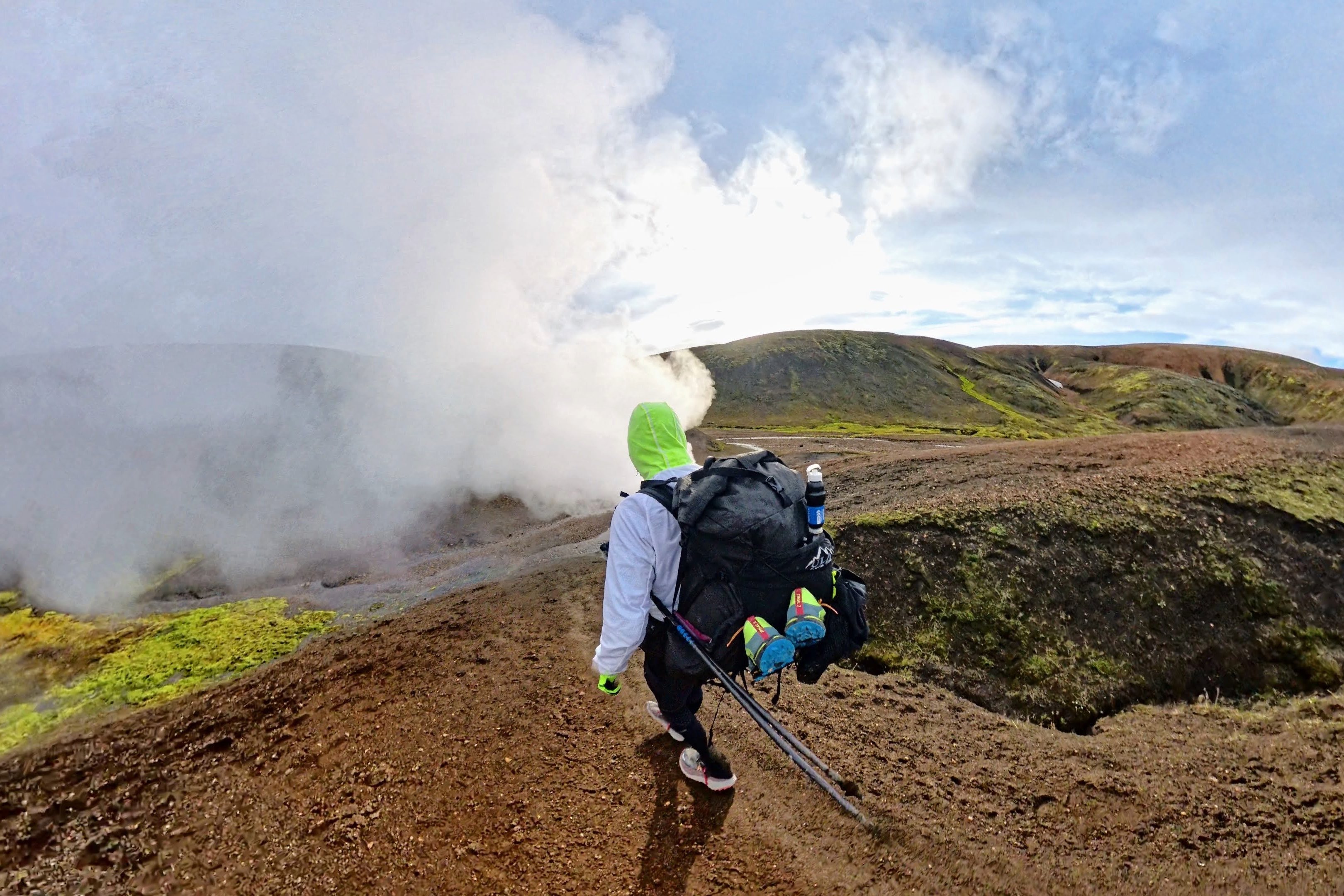
What was different about this FKT attempt compared with others you’ve run?
Other FKTs, like 99% of them, follow a set route. You’re hiking the Appalachian Trail, or you’re doing the Florida Trail, and you have to stay on the exact route of the trail and follow the blazes. With this record, it’s completely open. The only rule is that you have to start at the northernmost lighthouse, and you finish at the southernmost lighthouse. And you could choose whatever route you want.
Christophe, the guy who had the record, took about 35 to 40 miles of deviations compared to the previous record … Taking a little bit more risk and doing more creek crossings. I just trusted that he figured out the best route and followed it. And anytime I thought there was a little deviation I could make, I’d do that. But it ended up only being maybe 4 miles, where I took a little detour compared to him.
What were some of the biggest challenges you had to overcome out there?
Water was the biggest issue for two reasons. There was either too much of it or too little of it. There was a 50-mile section with no water. So I had to haul, like, 12 pounds of water in my pack just to make it from one water source to the next. And it’s in the middle of the desert.
Then, all the rivers I was refilling from were glacier-fed … at night, [the glacier] freezes and all the rivers dry up. So there’s no water. You’re getting ready for this 50-mile water carry and get to where you’re supposed to fill up water and there’s nothing there. And you have to wait 8 hours until sunlight comes and it starts melting the glacier and bam, you can fill up again.
But also, there was too much water in sections where there would be constant creek crossings. It would be 30 crossings in a mile and nonstop changing your shoes.
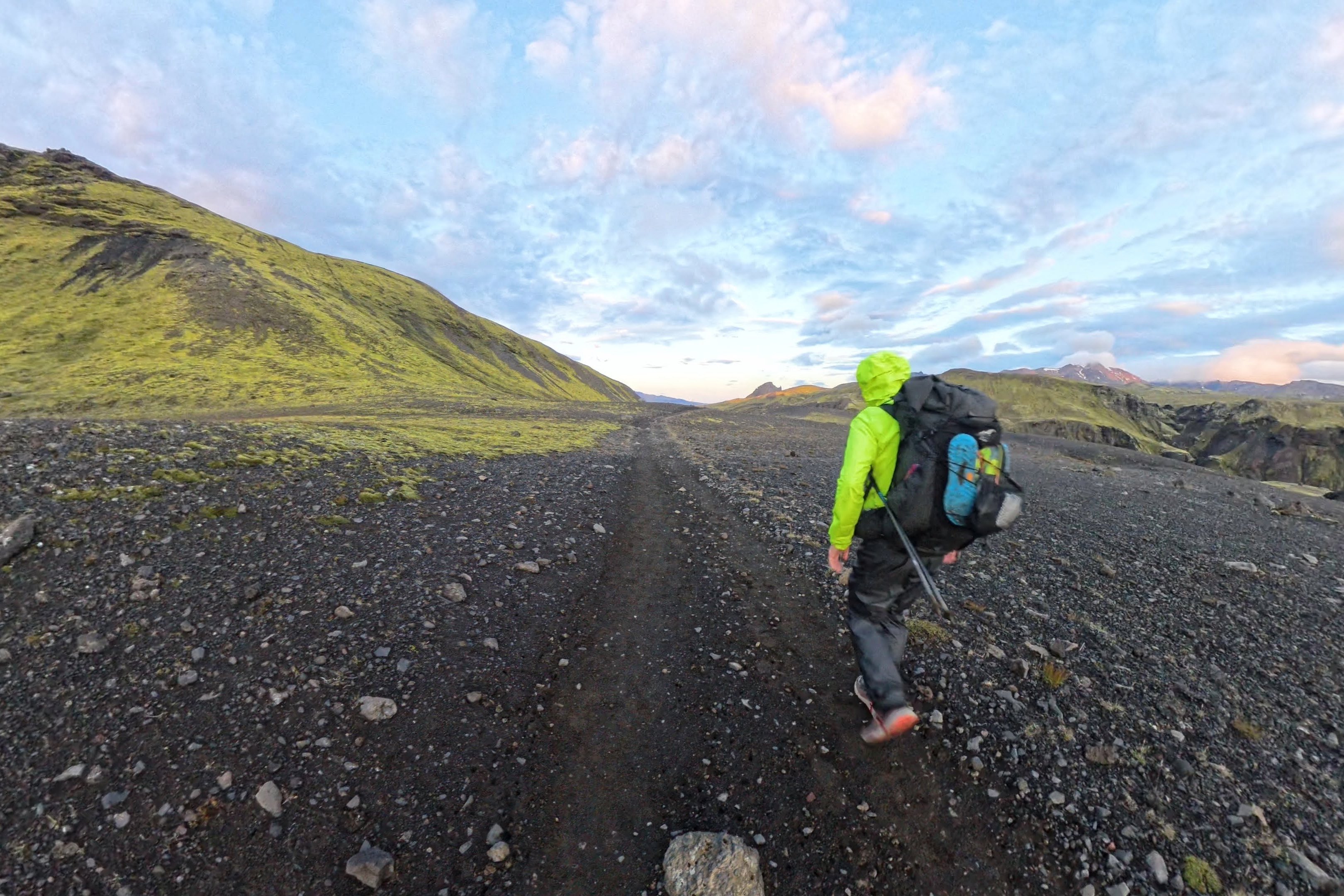
Were there any notable high points or moments of celebration?
There were so many highs. I’m very grateful that my mind doesn’t go super-negative in these things even if I’m really suffering and I’m lost or the conditions are really bad, the weather is really bad, I don’t go negative. So, my mindset is positive 99% of the time. I was enjoying every single moment out there.
But it was interesting — the moments I would see other people were probably the biggest highlights. Even though I was doing this completely unsupported and I wanted to be alone, when I wouldn’t go for 2 days without seeing anybody and all of a sudden, I come across a guy driving a Jeep, I’m like, “Hey! Hey! You wanna talk to me? Just come stop for a second. Let’s talk.”
And I would talk their ear off, and they’d be like, “What is wrong with this guy?” And then as soon as I’d tell them I’m American, they’re like, “Oh, that totally makes sense why you’re crazy and you’re out here.”
Were you ever afraid you weren’t going to make it?
Not really. I had confidence in all the gear and my mindset and the training I had. So I wasn’t ever scared about the conditions or where I was going or what I was doing. I was like, “All right. I’m comfortable. I know I can survive.” … I had everything I needed to survive. If anything went wrong, I could just stop, open my backpack, and grab something out. Put more layers on, go change my shoes, change my socks, pop blisters, whatever.
It’s something that I’m really proud of. I’ve built up the experience over these 16 years doing these crazy endurance races. Now I have the confidence to go do something like this … I never felt scared or like my life was on the line. I could just fully enjoy it. Everything was enjoyable out there even with all the suffering because I had the experience.
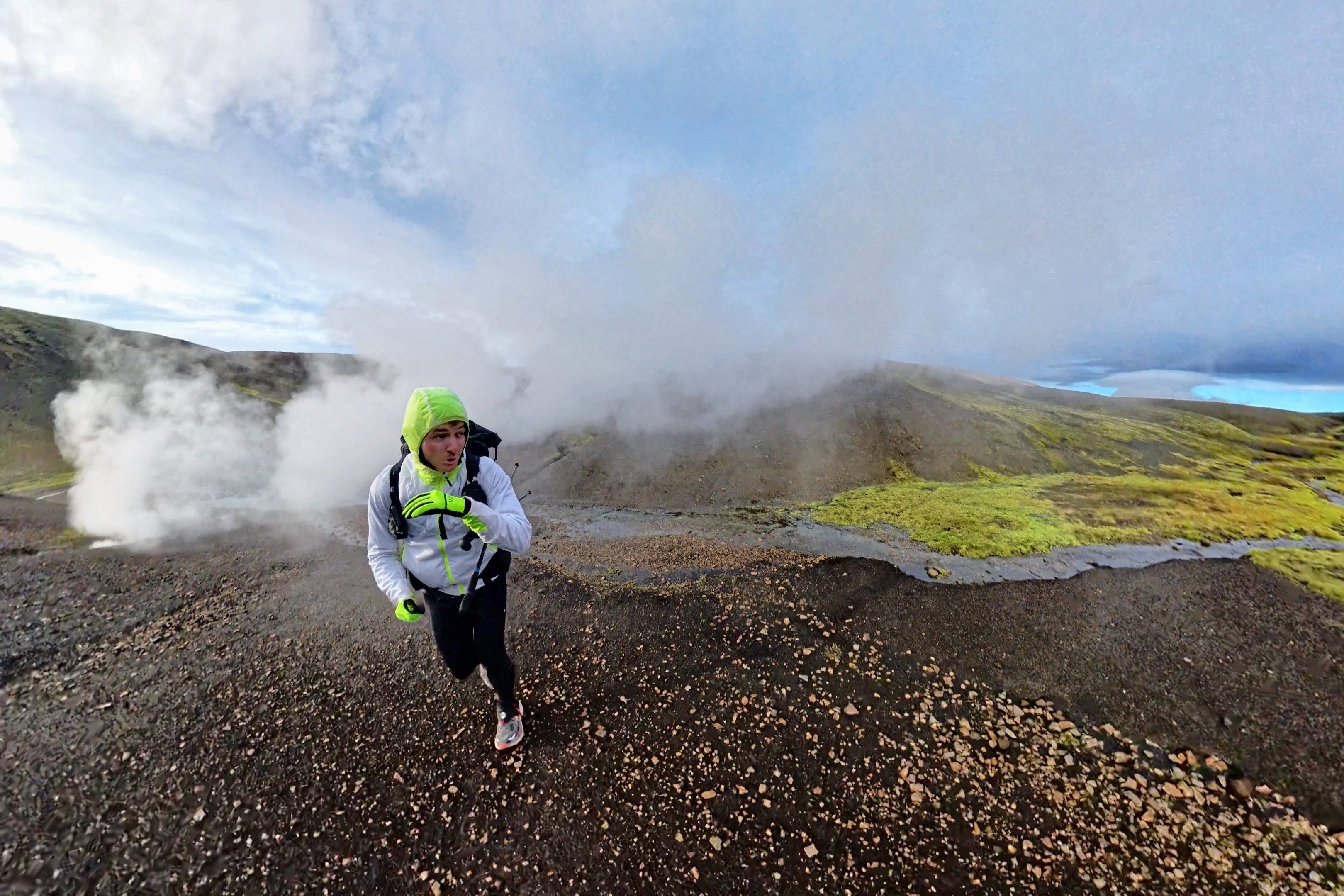
What was the weather like?
The weather was all over the place. The last day, it felt like 70, 80 degrees, super sunny. I got really sunburned, hot, big climbs. I was just huffing and puffing on all the climbs.
But then in the Highlands, it was in the 30s, but the wind chill made it feel like 0 degrees and it was raining. It was really strong wind almost the whole time and, of course, it was a headwind. Never behind me. It was a constant headwind, raining and foggy. So I had to wear ski goggles most of the time because the wind and rain was so strong.
But then it would clear up, and it would be super hot and sunny and completely still. And the issue about no wind and no rain is once it’s still, the midges come out, which are basically like these little noseeum insects. And thousands of them swarm your head. So it’s like, all right, would you rather have crazy insects swarm you? Or just constant wind?
How did you set your pace?
One thing I’m a really big proponent of is never looking at your watch … I like to just go based on feel and never look at the watch. So I had my watch on, but it was completely shut off and covered up the whole time.
But at the end of the day, I was basically always averaging 3 miles per hour with all my breaks included … It was mainly based on the weather where the first day I took it pretty easy. I got 50 miles in, and I stopped and slept as soon as the rain and wind started coming in pretty bad at night. Then, that second day, I pushed really hard because I saw a really good weather window. So, I ended up pushing for 26 hours with no sleep.
It sounds pretty reckless, but with my experience with sleep deprivation, I knew I could do that, get 2 hours of sleep, and then be right back on the schedule and basically skip a whole night’s rest. And I felt perfectly fine. So a lot of my my pacing and how many miles I got for the day were based on the weather more than how my body felt.
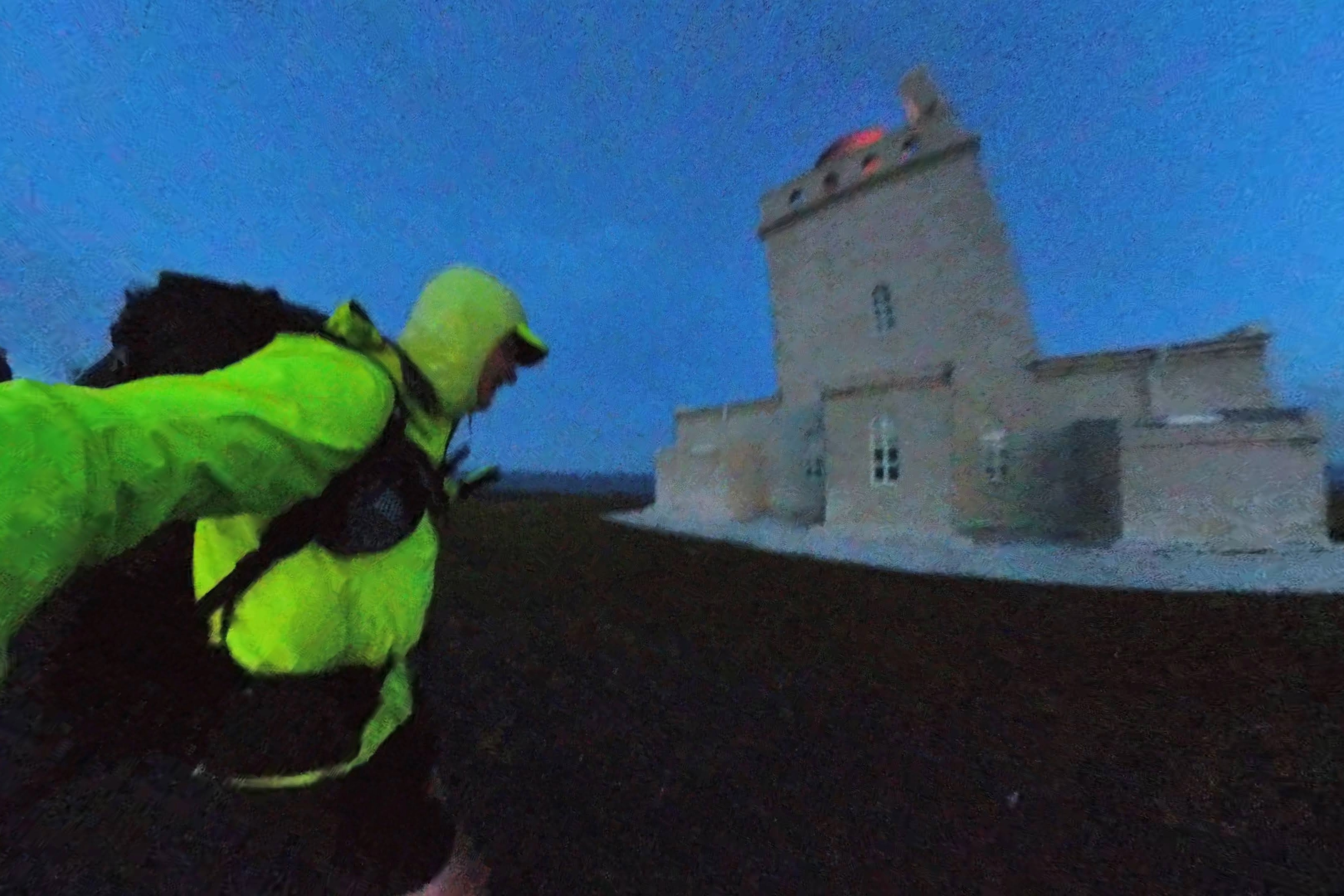
What was it like getting to the southern lighthouse?
I was never really focused on that lighthouse until I saw it. But the thing about Iceland, it’s so vast and the distance and everything, you can see for about 40 miles. So I’m coming down the last mountain, and I felt so good. It was a huge climb in between these two glaciers and a volcano — the most beautiful place ever, and it’s like the most famous hiking trail in Iceland. I’m feeling so good. I’m crushing it.
I get to the top, and I could see the lighthouse. I could see the finish line. I’m 2 days and 5 hours ahead of the record … As soon as I start going downhill, my knee blows out. And I’m in excruciating pain. I can barely take a step or put any weight on it. I’m crying because it’s so painful. And I’m, like, oh my gosh. I could see the finish line. And it’s gonna take me 2 days to get down there because I’m so crippled.
There were all these other hikers there, but I couldn’t accept any support from anybody. I couldn’t grab anything from the shelter. There was a guy hiking by, and he was like, “Oh, I have a knee brace. You wanna use my knee brace?” I was like, “No. I can’t accept that, unfortunately.” But I was like, “Oh, a knee brace!”
So I took my GOREWEAR neck warmer buff thing, put it around my knee, took paracord from my tent, made a tourniquet thingy, and tied it really tight, took my ankle gaiters, and pulled them up over my knee. So I had this, like, makeshift knee brace, and somehow I felt amazing … I basically limped down the mountain, and then it was a 20-mile road walk to the finish line.
Gear to Speed Traverse Iceland
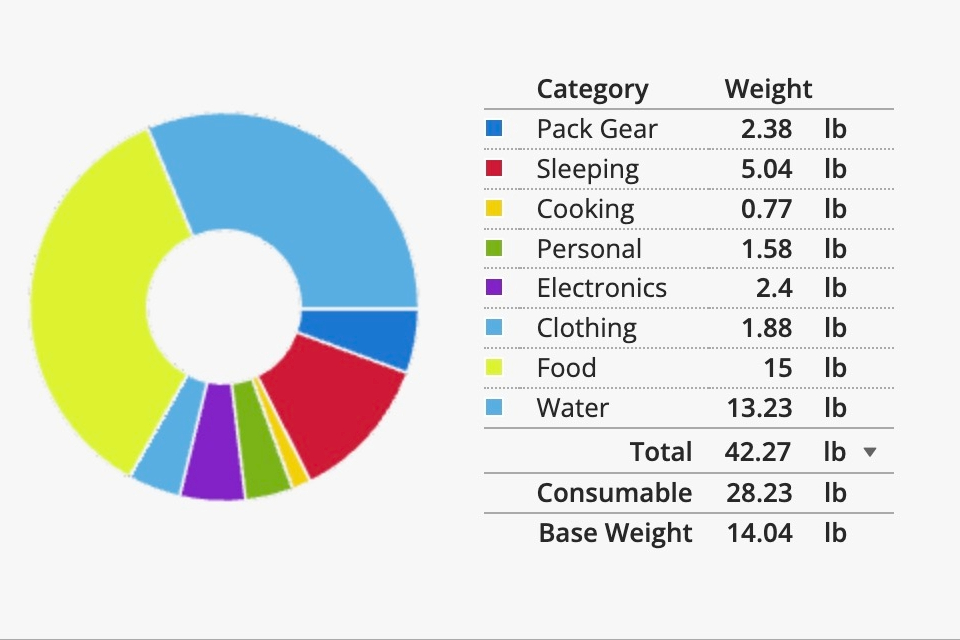
Leininger mentioned his gear numerous times throughout our interview. He clearly felt a huge amount of confidence in his survival kit. It had to be absolutely dialed for an unsupported FKT attempt of this nature. And it was. When he shared the list of his gear, it was both extensive and comprehensive.
Not only does he have every single piece of gear listed, including its weight, but he also has a pie chart totaling everything up and dividing weight by categories. He also had a separate “food calories” Google spreadsheet listing every food item he brought, including info on flavor, weight, number of calories, fat, carbs, fiber, sugar, and so on.
Even for a gearhead, these lists were almost overwhelming. It’s no wonder Leininger had such great confidence in his gear. He clearly planned it out to a tee. Here are some highlights we pulled from the list.
- ULA Catalyst Backpack
- Smart Bottles
- Sawyer Squeeze Water Filtration
- Regular Pack Liner Dry Bag
- Platy Bottle Bladders
- ShelterSol Emergency Shelter
- Zpacks Plex Solo Tent
- Zpacks 30F Quilt Sleeping Bag
- Neoair Uberlite Sleeping Pad
- MSR stove with mini pot
- Ombraz
- Black Diamond Headlamp
- Insta360 Camera
- iPhone 13 Pro Max
- NetHead Bug Net
- Nitecore NB10000 Gen II Battery Bank
- Backup water filter: Coffee filter papers
- Self-contained toothbrush
- Dry toothpaste
- Reusable floss pick
- Ski goggles
- Baby powder
- Duct tape
- Clothes (mostly Gorewear, which is one of his sponsors)
